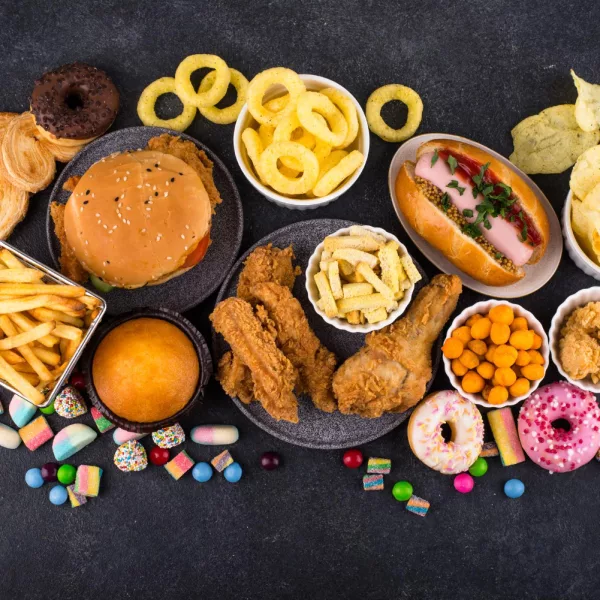We all know that food is essential for our physical health, but did you know that it can also affect our mental health? Eating a healthy and balanced diet can help improve our mood, energy levels, and overall well-being.
In this blog, we will explore the foods that can help boost your mental health and provide some tips for incorporating them into your diet.
Why is Diet Important for Mental Health?
The food we eat plays a crucial role in maintaining our mental health. Certain foods contain nutrients that are essential for the production of neurotransmitters, which are chemicals in our brains that regulate our mood, behaviour, and cognitive function. A deficiency in these nutrients can lead to mood disorders such as depression and anxiety.
Additionally, certain foods can cause inflammation in the body, which has been linked to the development of mental health disorders. Eating a diet high in processed foods, refined sugars, and saturated fats have been shown to increase the risk of depression, anxiety, and other mental health disorders.
On the other hand, a diet rich in whole foods, fruits, vegetables, and lean protein has been associated with better mental health outcomes. By incorporating these foods into your diet, you can improve your mood, boost your energy levels, and reduce the risk of developing mental health disorders.

Foods that Boost Your Mental Health
- Fatty Fish
Fatty fish like salmon, tuna, and sardines are rich in omega-3 fatty acids, which have been shown to improve brain function and reduce the risk of depression. Omega-3 fatty acids are essential for the production of neurotransmitters like serotonin, which plays a crucial role in regulating mood.
- Whole Grains
Whole grains like brown rice, quinoa, and oats are rich in complex carbohydrates, which provide a steady source of energy and can help regulate blood sugar levels. Low blood sugar levels can cause mood swings and irritability, so it is essential to eat foods that provide a steady source of energy.
- Leafy Greens
Leafy greens like spinach, kale, and broccoli are rich in vitamins and minerals that are essential for brain function. They are a good source of folate, which has been shown to reduce the risk of depression. Additionally, leafy greens are rich in antioxidants, which can help reduce inflammation in the body.
- Nuts and Seeds
Nuts and seeds like almonds, walnuts, and chia seeds are rich in healthy fats, protein, and fiber. They are a good source of magnesium, which has been shown to improve mood and reduce symptoms of depression. Additionally, nuts and seeds are rich in antioxidants, which can help reduce inflammation in the body.
- Fermented Foods
Fermented foods like yoghurt, kefir, and sauerkraut are rich in probiotics, which are beneficial bacteria that live in our gut. Probiotics have been shown to improve gut health, which has been linked to better mental health outcomes. Additionally, fermented foods are rich in vitamins and minerals that are essential for brain function.
Tips for Incorporating These Foods into Your Diet
Now that you know which foods can help boost your mental health, here are some tips for incorporating them into your diet:
- Start your day with a healthy breakfast that includes whole grains, protein, and healthy fats. For example, you could have oatmeal with nuts and seeds or a salmon omelette with leafy greens.
- Snack on nuts and seeds throughout the day for a healthy source of energy and protein.
- Add leafy greens to your lunch and dinner. For example, you could have a spinach salad with grilled salmon for lunch or sautéed kale with quinoa and roasted vegetables for dinner.
- Eat fatty fish at least twice a week. You could try baking salmon with a side of roasted veggies for a simple and delicious meal.
- Incorporate fermented foods into your diet by having yoghurt with fruit for breakfast, or adding sauerkraut to your sandwich at lunch.
- When snacking, choose whole foods over processed snacks. For example, instead of reaching for chips or candy, try snacking on a piece of fruit with a handful of nuts.
Final Thoughts
Eating a healthy and balanced diet is essential for our physical and mental health. By incorporating whole foods, fruits, vegetables, lean protein, and healthy fats into your diet, you can improve your mood, boost your energy levels, and reduce the risk of developing mental health disorders.
Additionally, it is essential to limit your intake of processed foods, refined sugars, and saturated fats, as they can increase inflammation in the body and lead to mood disorders. By making small changes to your diet, you can improve your mental health and overall well-being.





















Share this article